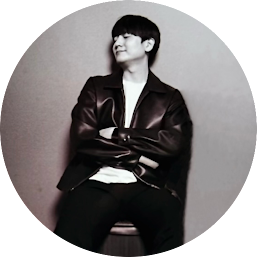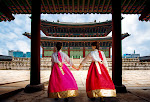Korean is a fascinating language with many regional variations that can sound quite different from the standard language taught in textbooks.
These regional variations, also known as dialects or satoori (사투리) in Korean, can be influenced by factors such as geography, history, and culture.
In this post, we'll introduce you to five interesting Korean dialects that you may not have heard of before.
Chungcheong-do Dialect (충청도 사투리)
Located in the central region of South Korea, the Chungcheong-do dialect is known for its distinctive intonation and rhythm. Speakers of this dialect tend to emphasize the final syllable of each word and use a rising tone at the end of sentences. Some common expressions in the Chungcheong-do dialect include "podo" (meaning "even" or "also") and "namjadeul" (meaning "men").
Gyeongsang-do Dialect (경상도 사투리)
The Gyeongsang-do dialect is spoken in the southeastern region of South Korea, including the cities of Busan and Daegu. This dialect is known for its unique vowel sounds, which can be difficult for non-native speakers to distinguish. Speakers of this dialect also tend to shorten words and use informal sentence endings. Some common expressions in the Gyeongsang-do dialect include "mbap" (meaning "food") and "joha" (meaning "good").
Jeolla-do Dialect (전라도 사투리)
The Jeolla-do dialect is spoken in the southwestern region of South Korea, including the cities of Gwangju and Jeonju. This dialect is known for its gentle and melodious tone, as well as its use of honorifics. Speakers of this dialect also tend to use the verb ending "-yo" more frequently than in standard Korean. Some common expressions in the Jeolla-do dialect include "nomu" (meaning "very") and "gwanshim eopseo" (meaning "I don't care").
Gangwon-do Dialect (강원도 사투리)
The Gangwon-do dialect is spoken in the northeastern region of South Korea, including the city of Gangneung. This dialect is known for its use of archaic words and expressions, which can be traced back to the region's history as a center of traditional Korean culture. Speakers of this dialect also tend to use the verb ending "-ya" more frequently than in standard Korean. Some common expressions in the Gangwon-do dialect include "dangsineun" (meaning "you are") and "hanbeon" (meaning "once").
Jeju Dialect (제주도 사투리)
It's worth noting that the Jeju dialect is one of the most distinctive and well-known Korean dialects. Spoken on the island of Jeju, this dialect features a unique set of vowel sounds and grammatical structures that are quite different from standard Korean.
Learning about Korean dialects can be a fun and interesting way to deepen your understanding of the language and culture. While it may take some practice to distinguish between the various dialects, it's well worth the effort to appreciate the richness and diversity of the Korean language.
-
-












0 Comments